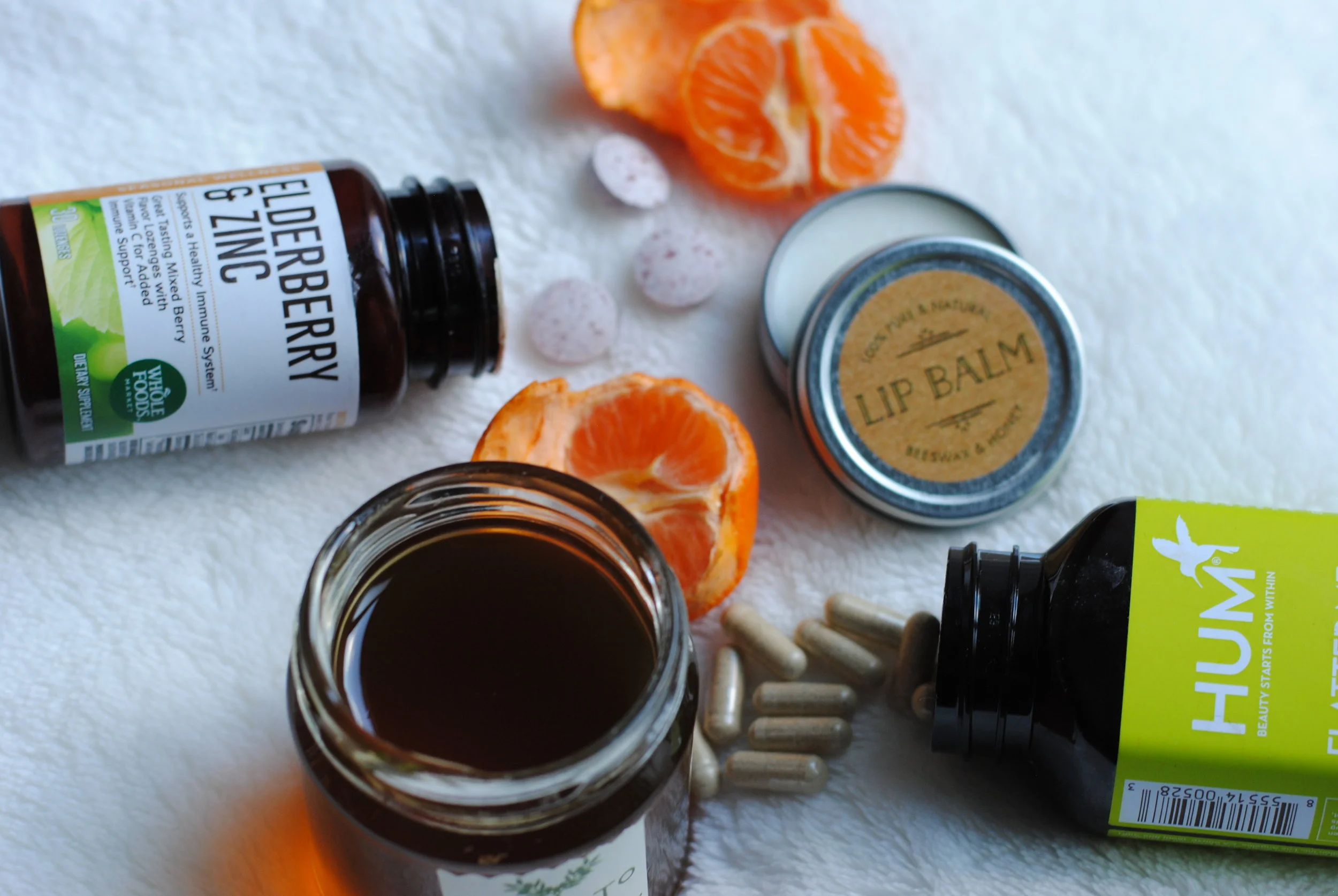What to Eat When You're Sick (According to Science)
There is a LOT of conflicting evidence surrounding what to eat when you’re sick….and does it matter if you have a cold or the flu?? I’m providing some natural remedies and food ideas that have science backing up their goodness!
The biggest question I get asked as a pharmacist is about vitamin C and preventing colds. Fun fact: Vitamin C does NOT prevent colds, but it can reduce the duration by about a day. So before you whip out the EmergenC or Airborne when you feel a cold coming on, just keep in mind that it won’t do anything to prevent you getting sick. But keep on sipping on orange juice and other vitamin C-rich foods to reduce the duration!
Here are my top five favorite foods to make you feel better, as well as the science behind their powers. Read up before flu and cold season gets into full swing!
Turmeric. If you read my blog often or follow me on instagram, you know how much I love turmeric. What’s not to like?! Turmeric root has been used for many many years in India as a dye, spice, and medicinal herb in the Ayurvedic medical system. The active compound in turmeric is curcumin, which has loads of antioxidant and anti-inflammatory properties. It can actually reduce viral replication in the flu virus (according to a 2009 study in Emerging Infectious Diseases). I love to use it in smoothies, warming soups, sauces, and golden milk lattes. Just remember to throw a dash of black pepper in along with it to activate it. My favorite turmeric blend is from Further Food, and you can find it here. Use the code ANNIEMUSKE10 for 10% off your first order! They also sell my favorite collagen peptides.
Ginger. I feel like most people know that ginger helps reduce nausea - but if you are drinking store bought ginger ale, chances are there is only a small amount of actual ginger in it (and some have none at all!) How do you reap the anti-nausea effects of ginger? Make sure to buy it fresh. Ginger can also be used for diarrhea, fever, and other problems arising with the stomach. Here is a link for one of the most extensive science-based evidence regarding nausea and vomiting. I love putting fresh ginger in smoothies and spicier soups - eventually I would like to be able to consume it alone, but I'm totally not there yet.
Honey. Ok, I bet nobody is surprised that I included this on this list too, but SERIOUSLY honey is the best. In addition to reducing the severity of seasonal allergies when taken consistently, it also potentially helps in colds, may have antiviral properties, and can be used as a cough suppressant. (Cohen, et al., 2012; Paul, et al., 2007). I love using honey in water with a bit of lemon to coat a sore throat and help me sleep better.
Bone broth can be a great way to get a plethora of minerals and vitamins when you may otherwise not feel like eating - it has protein from the broken-down collagen, minerals from the marrow, and other nutrients from the bone. In addition, it also has cysteine, an amino acid, which can help clear mucus from the system and help with lung protection. How can you go wrong sipping on a hot mug of bone broth while sitting on your couch fighting a cold?!
Green tea is full of antioxidants - just make sure that it's green tea you're drinking and not some tea high in caffeine, which can make you even more dehydrated. The antioxidants, called catechins, are raw/unfermented and are very high in green tea because the whole leaf is used. If you don't love the taste of green tea alone, consider adding honey to give it some sweetness and added benefit!

